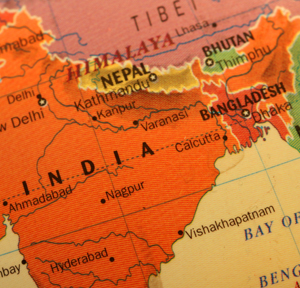WM Market Reports
EXCLUSIVE: Janus Corporate Solutions On Singapore's Role As India Investment Portal

The following article is by Jacqueline Low, who is chief operating officer, Janus Corporate Solutions, part of the Hawksford Group. She writes about how Singapore remains one of the most important, if not the most significant, gateways for investments to India.
The following article is by Jacqueline Low, who is chief operating officer, Janus Corporate Solutions, part of the Hawksford Group. She writes about how Singapore remains one of the most important, if not the most significant, gateways for investments to India. Some of the focus in her article is more on companies than individuals, although in practice there is no hard dividing line between the two. This publication is grateful for the article and hopes it encourages debate; it emphasises that it doesn’t necessarily endorse all the views expressed. We invite readers to respond.
According to the data released by the Department of Industrial Policy and Promotion, Singapore has won the top spot among the source countries for Foreign Direct Investments (FDI) into India. With $5.98 billion FDI into India in 2013-14, the highest-ever investment from Singapore since 2006-07 it has replaced Mauritius, which reigned as the top source for FDI into India. Mauritius slipped to the second position amidst concerns of implications of the General Anti Avoidance Rules that will take effect from 1 April 2016. The impending re-negotiation of the tax avoidance treaty between Mauritius and India has also given rise to much uncertainty.
Singapore accounted for a quarter of the total FDI inflows into India last year. Mauritius, with a share of $4.85 billion, lost its position among international investors owing to its unpopular image as a tax avoidance route for investments flowing into India. Investors using Mauritius companies were being criticised for engaging in treaty shopping activities; several high profile cases filed by the tax authority of India further exacerbated the already bruised image of Mauritius.
Among international investors, Singapore and Mauritius were the popular routes for making investments into the Indian markets. The fact that both the jurisdictions do not tax capital gains and both have a Avoidance of Double Taxation Treaty with India were the key traction among the international investors targeting India. Although India charged Dividends Distribution Tax, investors took advantage of the DTA and engaged in share buyback schemes to repatriate the profits to their Mauritian or Singaporean entity, where it was treated as capital gains and exempted from taxes.
In the 2013 Budget, the Indian government sought to clamp down on blatant evasion and exploitation of the DTA by introducing a new tax on unlisted companies engaging in share buyback schemes. Accordingly, a private unlisted company would be taxed at the rate of 20 per cent on the consideration paid by it during buyback, as reduced by the amount received by it at the time of issue of such shares. This new act also covers the foreign investors who route investments through entities in treaty countries, including Singapore and Mauritius. In order to avail any treaty benefits, investors must prove commercial substance, legitimacy, beneficial ownership etc., besides proving residency.The DTA between India and Mauritius lacks the Limitation of Benefits (LoB) clause, to ensure legitimacy and commercial substance to substantiate claims of treaty benefits. Singapore’s DTA with India however incorporates a LoB clause requiring companies claiming treaty benefits to demonstrate commercial substance by requiring annual expenditure of over S$200,000, in each of the two years preceding the year in which the gains are realised.
Singapore tax law provides safe-harbor rules to be fulfilled on sale of investments to qualify as capital transaction; the beneficiary must have had at least 20 per cent holding and the shares must have been held for at least 24 months. Subject to certain conditions the Singapore-India DTA also provides credits against Indian taxes paid either directly or indirectly. Accordingly the Singapore resident company can claim credit against Indian tax paid by the dividend paying company in respect of the profits from which the distribution is made.
Singapore has always tried to evolve with the times, be it in terms of infrastructure, regulatory regime or enterprise ecosystem, the priority is to remain relevant to accelerate and sustain business and economic growth. That’s how Singapore has retained its distinguished status as a hub for so much of Asia. We anticipated this development when India tightened its anti-avoidance measures and were confident that the key clauses in the DTA of Singapore and India, such as the LoB, will help Singapore surpass the other investments routes and especially overtake Mauritius.
The FDI figures testify Singapore as a legitimate route for investments into India, and more importantly the investors’ confidence in the city-state tax compliance systems. We have more foreign enterprises and investors incorporating in Singapore to legitimately leverage the treaty benefits and capitalise on India’s appetite for foreign investment. Given its strong reputation, we are confident that Singapore will continue in its top spot as the gateway of investments into India for a long time to come.
